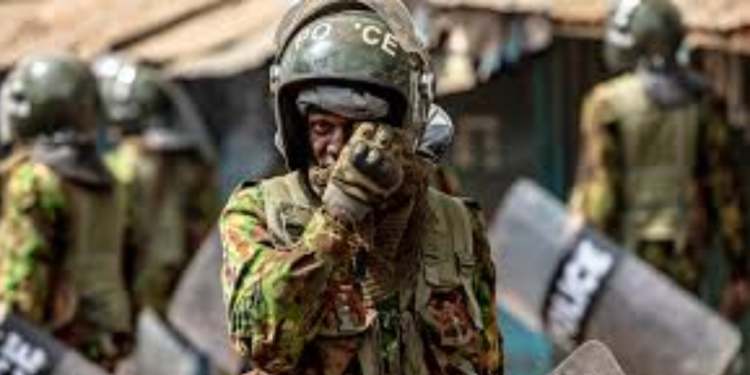Anti-riot police braved the cold in Nairobi on Thursday to patrol major streets, hours after Acting Inspector General of Police Douglas Kanja announced a ban on protests in the Nairobi Central Business District (CBD) for an unspecified duration.
Increased police presence was noted around Uhuru Park, where a group had planned to occupy the area as part of their call for governance reforms. The ban on protests sparked significant outrage online, with many questioning the legality of the police’s authority to impose such a restriction.
Kanja stated that the ban would extend to other parts of the country as well. He expressed concerns that the organizers of the protests lacked identifiable leadership, making it difficult to manage the events safely.
“As a result, no demonstrations will be permitted in the Nairobi Central Business District and its surroundings until further notice to ensure public safety,” Kanja announced. He highlighted that protests, which began in June, have led to significant property damage and loss of life due to the involvement of criminal elements.
The police had received intelligence about a plot by these groups to disrupt upcoming protests, including one scheduled for Thursday, July 18, 2024. Kanja emphasized that, due to the lack of known leadership among the youthful protesters, the police were unable to guarantee their security, necessitating the ban.
“In keeping with our constitutional role and in the interest of national security, we wish to inform the public that we have credible intelligence indicating organized criminal groups are planning to exploit ongoing protests to carry out attacks, including looting,” he stated.
In response, police commanders deployed hundreds of anti-riot officers throughout the city, patrolling the streets while others remained in vehicles on alert.
The protests have reportedly resulted in more than 50 deaths and over 400 injuries, along with extensive property damage. Initially sparked by the proposed Finance Bill 2024, the protests escalated dramatically, culminating in a chaotic raid on parliament.
As the situation evolves, attention turns to the new police leadership, including Acting Inspector General Douglas Kanja, Acting Deputy Inspector General Eliud Lagat, and Administration Police Chief James Kamau. While these officers are experienced, their effectiveness in managing the ongoing unrest will be closely scrutinized.
What began as a reaction to the controversial finance bill has transformed into a broader revolt, largely unorganized by political parties. Hundreds of protesters, feeling overtaxed with little to show for it, faced tear gas and police resistance while marching through major towns.
The youthful demonstrators, often referred to as Gen Zs, took to the streets armed with smartphones, live-streaming confrontations and vowing to ensure their dissent was heard beyond mere social media hashtags. Many were participating in protests for the first time, while those unable to attend shared messages, photos, and videos online, further amplifying their cause.
The absence of clear leadership among the protesters has complicated police efforts to target the movement’s organizers.















